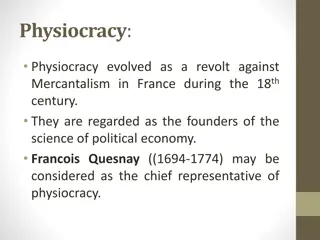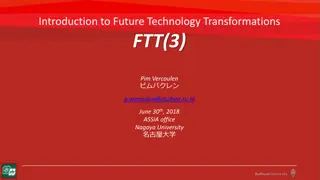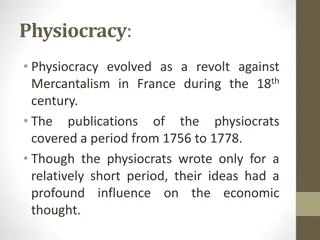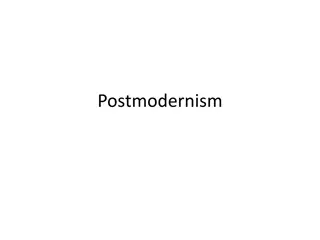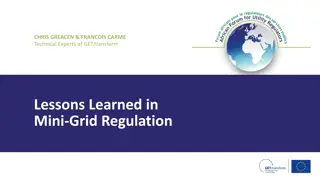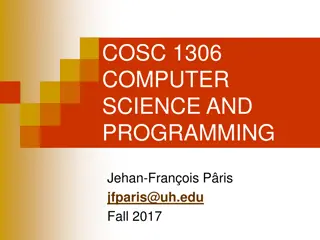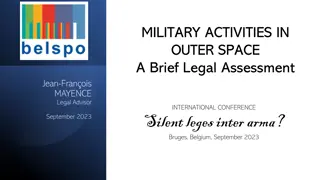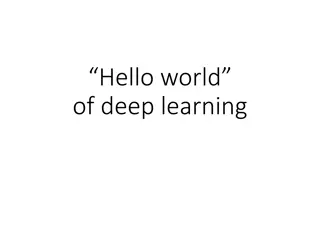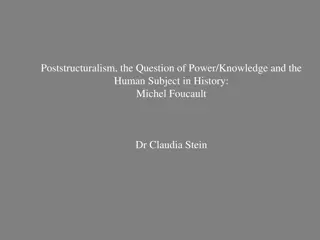Understanding Physiocracy: The Economic Philosophy of Francois Quesnay
Physiocracy emerged as a response to Mercantilism in 18th century France, with Francois Quesnay as a key figure. The basic principles of Physiocracy include the belief in natural order, advocacy of laissez-faire, emphasis on agriculture as the only productive occupation, support for private property
4 views • 14 slides
Understanding Growth Pole Theory by Francois Perroux
Growth Pole Theory by Francois Perroux explains how economic development is not uniform across a region but rather focuses on specific poles or clusters where industries thrive, leading to overall growth through inter-industrial linkages and external economies. The theory highlights the importance o
1 views • 11 slides
Exploring Future Technology Transformations Framework
The Future Technology Transformations (FTT) framework, developed by Jean-François Mercure, focuses on key sectors like power, transport, heat, steel, agriculture, and cement to address climate change. Based on innovation economics and Schumpeterian principles, FTT emphasizes the widespread deployme
0 views • 16 slides
The Rise of Physiocracy in 18th Century France
Physiocracy emerged in 18th century France as a response to the shortcomings of Mercantilism, focusing on agricultural prosperity and natural economic principles. Led by prominent thinkers like Francois Quesnay and Turgot, physiocrats challenged the prevailing economic system, influenced Adam Smith,
0 views • 9 slides
Exploring Postmodernism: Art, Literature, and Philosophy
Postmodernism challenges traditional beliefs about language, identity, and reality. It is characterized by skepticism, subjectivism, and a critical view of ideology in politics and economics. Key thinkers like Thomas Pynchon, Donald Barthelme, and Jean-François Lyotard have contributed to shaping t
0 views • 26 slides
Lessons Learned in Mini-Grid Regulation: Key Insights for Regulators
Technical experts Chris Greacen and Francois Carme share key lessons learned in mini-grid regulation, emphasizing certainty, flexibility, fairness, and streamlining. They highlight the importance of clear rules, long licensing periods, flexibility in tariff structures, and fostering a conducive envi
0 views • 10 slides
Introduction to Basic Python Programming Concepts
In this Fall 2017 course, COSC 1306 - Computer Science and Programming by Jehan-François Périr, students delve into the fundamental concepts of Python programming. The course covers values, data types, strings, and identifying malformed strings in Python code.
0 views • 57 slides
International Laws Regulating Military Activities in Outer Space
The legal advisor, Jean-François Mayence, presented a detailed overview of international regulatory laws concerning military activities in outer space at the International Conference in Bruges, Belgium. The presentation highlighted key treaties such as the 1967 Outer Space Treaty and the 1979 Agree
0 views • 8 slides
Introduction to Keras for Deep Learning
Introduction to the world of deep learning with Keras, a popular deep learning library developed by François Chollet. Learn about Keras, Theano, TensorFlow, and how to train neural networks for tasks like handwriting digit recognition using the MNIST dataset. Explore different activation functions,
0 views • 17 slides
Celebration of the Eucharist: Catholic Education Reflections
Reflections on the gift of Catholic Education and the life of St. François de Laval during a Eucharistic celebration. The gathering hymns, readings from 2 Timothy and Psalms, and Gospel acclamation all emphasize the importance of proclaiming the message with patience, praising God's deeds, and bear
0 views • 23 slides
The Linguistic Turn and Poststructuralism: Challenging Notions of Reality and Authority
Poststructuralism and the Linguistic Turn challenge the representation of reality through language, questioning the possibility of accessing objective truth. This movement critiques authoritative accounts, targeting hidden metanarratives of modernity. Michel Foucault and Jean-François Lyotard are k
0 views • 31 slides
